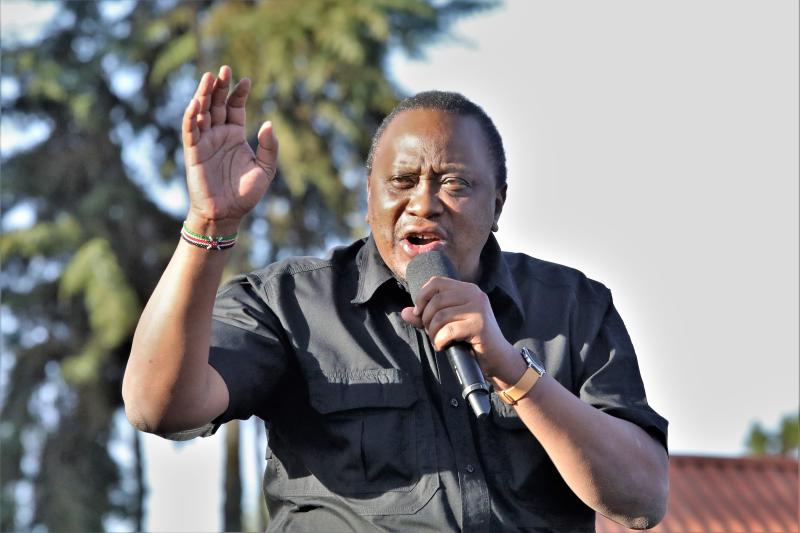×
The Standard e-Paper
Smart Minds Choose Us

President Uhuru Kenyatta addresses residents of Ndathi in Kieni Constituency, Nyeri County, February 1, 2021. [Mose Sammy, Standard]
The only loser in the BBI debacle is President Uhuru Kenyatta. After the ruling at the Supreme Court last week, his political foes were filled with mirth and sneer while trepidation and feelings of doubt about the future occupied the minds of his friends.